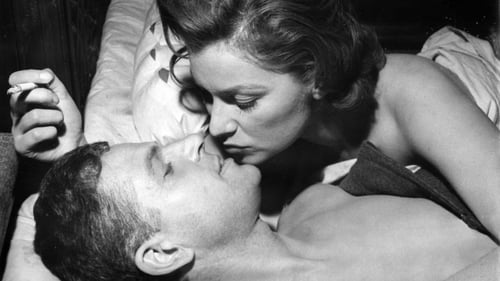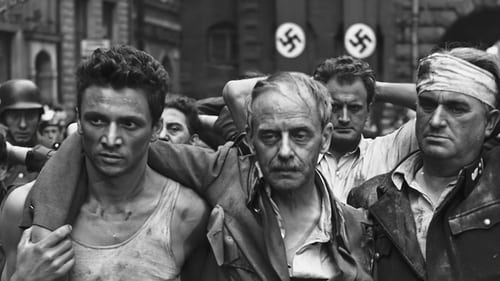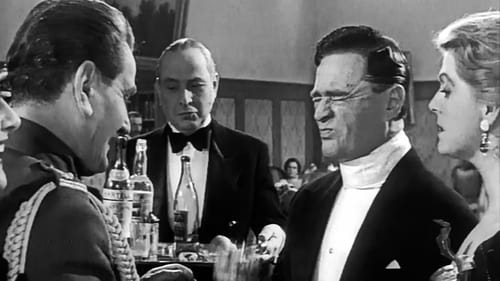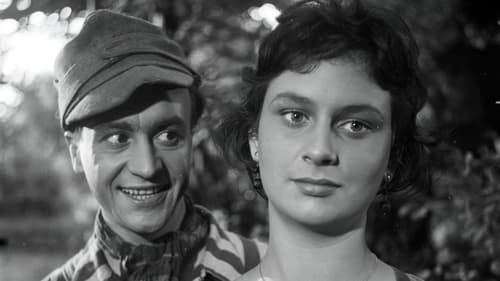Władysław Forbert
Nacimiento : 1915-05-26, Warsaw, Poland, Russian Empire [now Warsaw, Mazowieckie, Poland]
Muerte : 2001-02-07

Director of Photography
The story of the life of a political prisoner in a Russian gulag. Based on the book by Aleksandr Solzhenitsyn

Director of Photography
A biographical documentary about Krzysztof Penderecki

Director of Photography
Siberia, contrary to people’s first association, is not a deserted land covered with snow. During the one-year stay, Polish documentary filmmakers collected materials that make up the image of the modern industrial area of the North.

Cinematography
Because of having a one-day plane delay, Konrad has to spend 24 hours wandering around Warsaw, visiting old friends and meeting some new ones.

Director of Photography
Tres episodios separados, todos basados en artículos de revistas, centrados en retratar la realidad de vivir en la Polonia de los sesenta.

Director of Photography
The reminiscences of a Russian pilot, shot down over Poland during the war, of his first great love there.

Director of Photography
After WWII a soldier returns to his Polish homeland from Scotland.

Director of Photography
Krakow in the sixties. A doctor, though not having finished his studies, earns a living providing medical advice. A former nurse enters the stage, saying she hears voices from "the other world". At first, they can exploit gullible victims without problems, but soon the authorities start to show interest in these quacks.

Director of Photography

Director of Photography
Film starring Wienczyslaw Glinski, Lidia Korsakówna and Grzegorz Roman

Director of Photography

Director of Photography
The heroic struggle of Polish post office workers in Gdansk on the first day of World War II.

Director of Photography
The dark drama of a peasant family from the second half of the 19th century: Seduced by a municipal clerk (in exchange for a promise to release her husband from military service), the woman dies at the hands of her jealous husband.

Director of Photography
Nikodem Dyzma is a poor dancer who comes to Warsaw to find a job. The problem is that nobody wants to hire him. One day he finds an invitation to the party with very important people and decides to attend. A small accident at the party makes him the hero of the night and becomes the beginning of his career.

Director of Photography
In the last days of World War 2, people of various ethnic background meet in a Polish military hospital in a small German town, whereas a Nazi SS division hides in the local forests and tries to move westwards.

Director of Photography
It tells the story of the love affair between Janka Małodworny and Hanki, the daughter of the kulak Nalepa. The two have each other, but their happiness is hampered by differences in possessions. To make matters worse, Małodworny is in favor of establishing a cooperative along Soviet lines, while old Nalepa is staunchly opposed.

Camera Operator

Director of Photography

Cinematography
This film describes the Second World Congress of Peace Defenders, held in Warsaw on November 16-22, 1950. Sheffield, an industrial city in England, was the initial location of the event, however, it was transferred to the capital of Poland at the very last moment.

Director of Photography
This reportage is focused on Wilhelm Pieck’s visit in Warsaw in 1950. He was the president of East Germany between 1949 and 1960. The visit sealed diplomatic relations between the Polish People's Republic and the newly established German Democratic Republic (1949).

Director of Photography

Director of Photography
Short documentary about the flooding that struck Poland in the spring of 1947.

Director of Photography
Breve noticiario sobre la reconstrucción de Varsovia.

Director of Photography
A film suite divided into three parts showing successively the defeat of Warsaw, the gradual awakening of the capital and the first post-war Warsaw spring. The film has no commentary, only music, whose mood and rhythm are closely related to the character of the presented images.

Director of Photography
Stefan Jaracz, expecting his death, wrote a letter to his fellow artists. Quotations from this ideological testament and excerpts from a pre-war film titled “Jego wielka miłość” accompany the shots of the famous actor's funeral in 1945.














